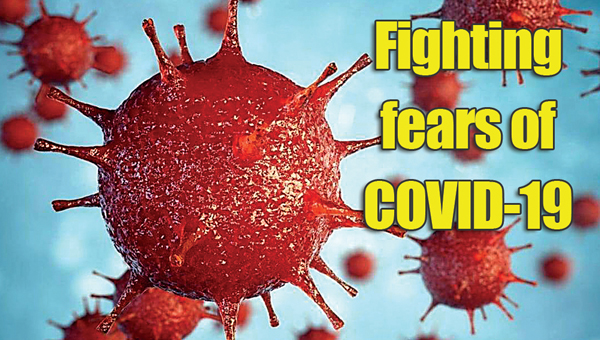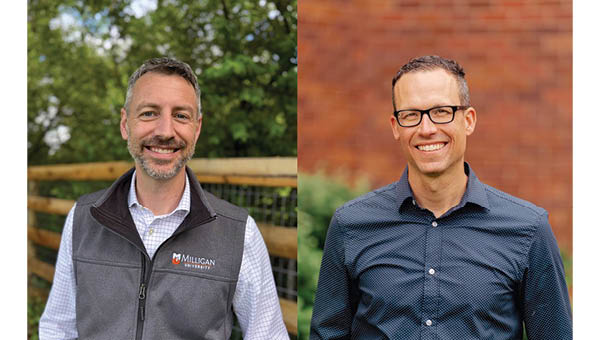Fighting fears of COVID-19
Published 9:24 am Friday, April 3, 2020
Fear is not uncommon during COVID-19, in fact it can be your first instinct.
COVID-19 is on every news channel and nearly every social media platform. As a result, fear is bound to happen. In some cases, this fear can impact how you treat others and your own mental health.
One common misconception with the virus is that those of Asian descent are to blame are more likely to spread it. Tim Perry, the Senior Vice President of Frontier Health, says this type of thinking is a misconception and unfair to these individuals.
“Wherever an identified location of a virus like this, wherever that’s identified as a geographic starting point, it’s oftentimes people start to develop certain types of mindsets about the people of that area, especially for a virus as unknown as this,” he said. “People start wondering what generated it there. People wonder if it was something created or of natural evolution. With that comes labeling, and sometimes the fear of people from that region. It’s not uncommon to have that, but at the same time we have to recognize this is a worldwide pandemic and it doesn’t have a geographic or ethnic orientation. These viruses could begin anywhere in the world.”
This mistreatment of individuals in some parts of the world have become so widespread that the CDC has addressed it and shown that COVID-19 affects people regardless of gender, race, socioeconomic status and age.
Alvis Cicely, Division Director/Speciality Services of Frontier Health, says now is the time to be kind, despite the fear.
“This all will pass, but while it is going on we have to show kindness to one another,” she said.
Other fears related to the virus stem from being labeled as having it. Perry said some of this fear could be from how others may perceive you if you have it. This could be worrying you will seem weak or even unhygienic.
“People are afraid to get tested,” he said. “They would almost rather not know than know, and try to wait it out. People oftentimes associate illness with weakness or a personal defect. Especially a virus of this nature. People oftentimes worry if they get labeled with it that they will be deemed dangerous to the public or as sanitary as they need to be.”
While some wait it out for fear of testing or rationalize any other illness it could be, Perry said that those who can be tested should. This information provides data on the spread and how extreme it may be.
Fears of the virus and the results of it, like losing your job for the time being or not knowing what will happen to you if you get it, has driven some to feeling helpless and suicidal.
Cicely wants people to know that there are resources that can help alleviate these feelings.
“Often people have thoughts of suicide when they feel hopeless that their problems cannot be solved,” she said. ”It’s important to remember that although you may think that the problems are not solvable, there are many professionals out there who are willing to help you work through these difficult times. Frontier Health offers free crisis counseling and can utilize a variety of grants to help individuals get help from the comfort of their home.”
In addition to resources available, there are things you can also do on your own to help care for yourself. This includes breaks from the constant media coverage, using reliable sources for information, staying connected with others, spending time doing things you enjoy, eating right, maintaining physical activity, and discussing the virus and fears with others, even in family units with children.
In times as these, while fear is the go-to emotion, remember to follow these suggestions. If you or anyone you know is feeling helpless, please call Frontier Health’s 24/7 Crisis Hotline. The number for Tennessee is 877-928-9062. The numbers for Virginia are, for Lee County 276 346-3590, for Scott County 276-225-0976 and for Wise County 276-523-8300. You can also call the National Suicide Prevention Hotline at 1-800-273-8255.






